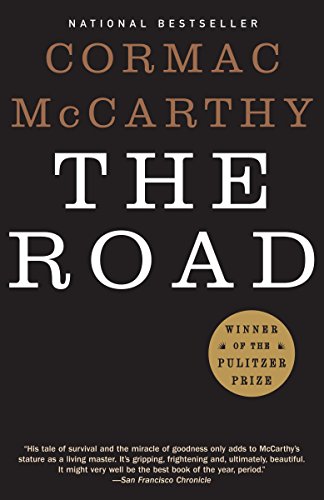Post-apocalyptic movies are popular for a reason. We live in a world that is brimming with long lines, bills, traffic jams, bureaucracy, and stressful jobs. So even though we intuitively understand that living in an apocalyptic hellscape would be an absolute horror show, in the back of our minds we kinda wish that we had an excuse to blow off all of our modern responsibilities.
In that sense, post-apocalyptic movies and TV shows provide the perfect fantasy for us. They give us loner protagonists wandering through the quiet, windswept ruins of our cities, scavenging for food and fighting off zombies instead of working day jobs. These films try to convince us that post-apocalyptic living is an arduous but simple feat, in much the same way that Old Western movies romanticized the pre-modern world.
 The Road
Best Price: $1.00
Buy New $6.58
(as of 06:40 UTC - Details)
The Road
Best Price: $1.00
Buy New $6.58
(as of 06:40 UTC - Details)
In short, these films depict the death of everything we hate about modern society while downplaying the consequences of that state of affairs. They portray the leftovers of our society as a playground for charismatic misfits, but neglect to inform you of a very important detail. If the modern world falls apart, never to return, it’s going to leave behind an abundance of ticking time bombs in its wake.
They don’t show you what will happen to millions of our abandoned pets, who will revert to their wild instincts after we stop feeding them, and begin competing with their former owners for food. These films don’t show you what it’s like to walk through an abandoned suburban city, where ten thousand swimming pools have turned into breeding grounds for disease-carrying mosquitoes.
They rarely mention the dozens of nuclear power plants that litter the United States. If no one is there to operate them, how long before
 The Road
Check Amazon for Pricing.
they melt down and bury millions of survivors under a radioactive cloud?
The Road
Check Amazon for Pricing.
they melt down and bury millions of survivors under a radioactive cloud?
Current Prices on popular forms of Silver Bullion
Then there are the 12,000 facilities around the country that store large quantities of toxic or flammable chemicals and reside close to residential areas. 2,500 of these sites contain chemicals in quantities that, if a catastrophic accident were to occur, could affect 10,000 to 1 million people each. And let’s not forget the 2.5 million miles of oil and gas pipelines that can be found in every state. They suffer hundreds of leaks and ruptures every year and are much more likely to explode when they aren’t maintained. That detail seems to be conveniently forgotten by post-apocalyptic films.




